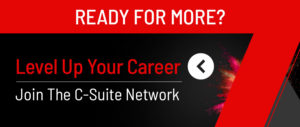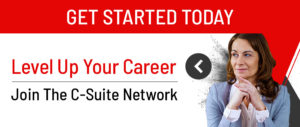
Executive Briefings: Intersection of Leadership and Social Media
Executive Briefings: Intersection of Leadership and Social Media https://csuiteold.c-suitenetwork.com/wp-content/uploads/2016/03/HASHTAG_RobH_500x500.png 500 500 C-Suite Network https://csuiteold.c-suitenetwork.com/wp-content/uploads/2016/03/HASHTAG_RobH_500x500.pngBy Thomas White for Huffington Post
In my work, I meet business leaders from all over the world who have advice, stories and personal tips to provide. I sit down with these leaders to give them the opportunity to provide current business advice and give a glimpse to their personal stories as a business leader.
I recently sat down with Rob Harles, Head of Social Business & Collaboration at Accenture Interactive. Rob joined Accenture from Bloomberg LP in New York where he was Global Head of Social Media responsible for developing and managing Bloomberg’s social media strategy and initiatives worldwide.
As a leader in social media for a long time, both at Bloomberg and now Accenture, what changes do you see in what expectations customers have of companies?
Customers have higher expectations than they’ve ever had. Social has acted as a catalyst for people to express their views, support, lack of support for brands, and what they expect brands to do, to live up to their promise. Only ten to fifteen years ago you wouldn’t have been able to do that. Brands were lucky enough to be able to tell you what they stood for and hope you believed it. Now you have to prove it, and social is acting as that catalyst.
We call it the ultra-transparency situation, and it affects how companies engage with customers. How would you describe this phenomena?
The phenomenon with social is really about people wanting to feel that they matter, and they want to be able to express that. It’s been around since the dawn of time, when we were just a nation of shopkeepers. As we grew and had to come to terms with the challenges of scaling businesses, we got more and more distant from our customers. The result was that we had to do standalone market research at a set point in time just to see where people’s needs or demands were going or how they felt about us. Now that’s changed. It’s 24/7. They’re telling you exactly what they need. They’re telling you exactly how they feel. Sometimes they’re telling you the extremes of that because there is less of a filter.
What do you see in the next five years? How is social media going to change as a medium, and how is it going to change the way we do business?
The advantage of real-time information is that we are addressing people’s issues faster. We are being more responsive. Organizations and brands are using the insights that come out of social to improve themselves, and that’s a good thing. But with that always comes challenges. This is where organizations go off the rails. At Accenture Digital, what we’re seeing is that companies are almost too ready to take data and do something with it and not really think about the implications. Also, it comes with the challenge of where do you draw the demarcation line in terms of privacy? How do you think about protecting the rights of your employees or the rights of your customers? There isn’t a day that goes by when there isn’t a headline about something like this. It’s creating great opportunities on the one hand, but it’s also creating a lot of challenges in terms of sensitivity and the law. Eventually we find our path. Eventually we figure out the right way to do something and sometimes we only do that by making mistakes. Sometimes the consequences of those mistakes are actually quite precious, but it still makes us better.
Let’s shift gears. As a leader, what are the traits that you most admire in other leaders?
Everybody is different. That’s the thing that I’ve recognized, and good leaders recognize that. We’re a little bit more open than we’ve ever been and don’t self-edit as much. Great leaders are ones who have a vision and are willing to be tenacious enough to drive that forward. An example would be if you say you want to have an innovative culture. It’s another thing to actually create an innovate culture. Great leaders are ones who are a little more flexible than they’ve ever been, but have great vision and can really motivate people to bring more than what they’re just asked to do. It’s like a puppy dog scenario. I love it when people come to me and they have an idea, it might not be a perfect idea, but it’s a start. They’re thinking. The worst situation is where you stifle that.
Along your way to becoming the leader that you are today, who has inspired you, and what about them inspired you?
I have to pay homage to some of the great thinkers and entrepreneurs that we’ve had in just the last few decades. Whether it’s Bill Gates, or Steve Jobs, or Steve Wozniak and many more. In so many ways they represent the unique American spirit of trying to do something that no one has done before. It’s high risk. I admire the people who are the unsung heroes who have tried something and it hasn’t worked. Most entrepreneurs, if they’re really honest, will tell you, “So much of our success is built not just on hard work or creativity.” But their little secret is luck and being able to see it and take advantage of it and run with it. Not everyone has that luck, but they have all the other things. Sometimes those unsung heroes drive us forward through the missed opportunities and the failures just as much as those who we venerate. I like to see people, generally, who try things and are okay with failing and picking themselves up, learning from it, and moving to the next thing.



![[PRESS RELEASE] Professional Recruitment Is Not HR [PRESS RELEASE] Professional Recruitment Is Not HR](https://csuiteold.c-suitenetwork.com/wp-content/themes/c-suitenetwork/images/empty/eut-image-small-rect-horizontal.jpg)
